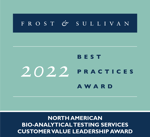The production of antibodies for use in research and development and in medicine has a long history. Although there is no doubt that the use of antibodies has made a significant contribution to our basic understanding of biology, they have also been singled out as a major factor in the poor reproducibility of many biology-based studies.

In a study by the Human Protein Atlas, a Swedish consortium whose goal is to generate antibodies directed against every protein in the human genome, the functionality of approximately 9,000 internally generated antibodies was evaluated. The consortium found that less than 50% were effective for examining protein distribution in preserved slices of tissue (failures were detected on the basis of a staining pattern not consistent with experimental and/or bioinformatics data).
In another study comprising assessment of 246 antibodies widely used in the field of epigenetics, researchers revealed that 25% of reagents failed tests for specificity, with some actually displaying high specificities for incorrect molecular targets. The issue of antibody quality continues to be a pressing challenge for scientists. Accordingly, numerous current initiatives aim to facilitate the availability of data regarding antibody quality and to develop validation standards for such reagents; a prominent example is the recently formed International Working Group on Antibody Validation (IWGAV).
The production of antibodies for use as reagents
Researchers continue to investigate why some antibodies purchased from commercial sources or generated in-house exhibit poor performance in downstream applications. This problem can often be traced back to technical oversights, incomplete characterization, or shortcuts that result in suboptimal functionality.
The generation of antibodies is complex and a variety of factors can impact each phase of the antibody creation process. Careful consideration of each step involved in the production of antibodies for use as reagents often represents the difference between obtaining an exceptional antibody and a far less useful poor quality antibody.
| Exception antibody features | Poor quality antibody features |
|
|
It should be noted that the last two characteristics mentioned will have a direct relationship to the cost of producing the antibody.
The outcome of a poor quality antibody intended for use as a reagent often requires the re-optimization of its characteristics, but starting the process from scratch is hardly desirable, due to the high manufacturing costs and significant delays associated with developing new antibodies. An up-front investment in the optimization process gives researchers the best chance of generating an antibody that will meet their needs in the long term.
Although this may require a higher initial investment and could extend the pre-production timeline, it can substantially reduce the financial, regulatory, and/or scientific consequences resulting from the production of poor-quality antibodies.
Academic and industry researchers often find themselves relying on poorly performing commercially available antibodies. However, with careful planning, high-quality antibodies can be generated before embarking on studies that require the generation of consistent and reproducible data.
Outcomes - commercial insights
Increasing the chances of developing an exceptional antibody requires careful planning from the earliest stages, including selection and preparation of the antigen. This up-front investment will position the antibody for success, saving time, effort, and money over the long run.
Depending on the ultimate application of your antibody, one should begin with an open-mind and give consideration whether a polyclonal antibody or monoclonal antibody is the best fit for your application.
You can also learn more by reading real life case studies to help you determine which antibody products are the best fit.



